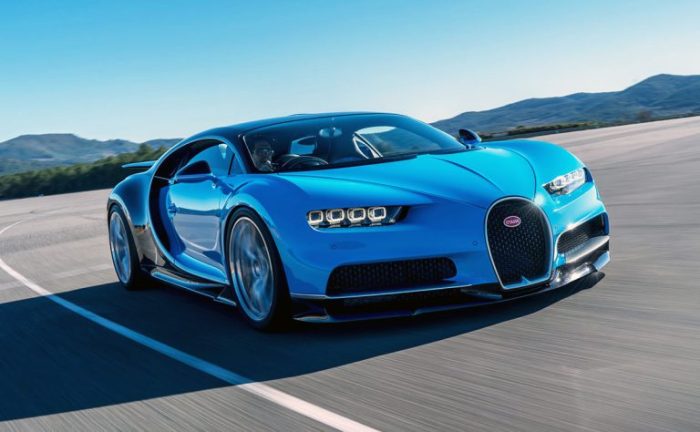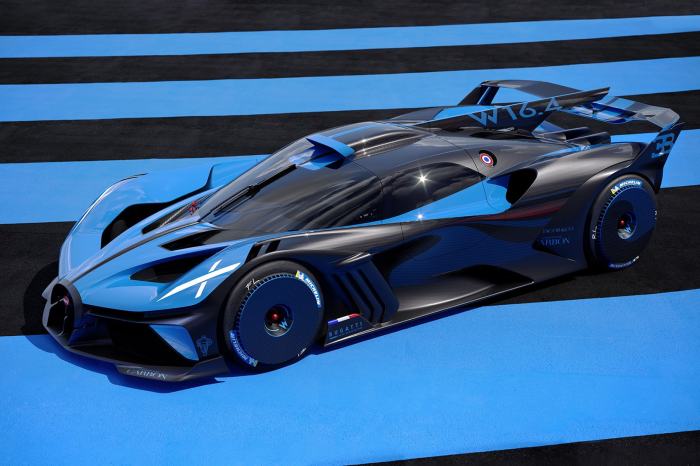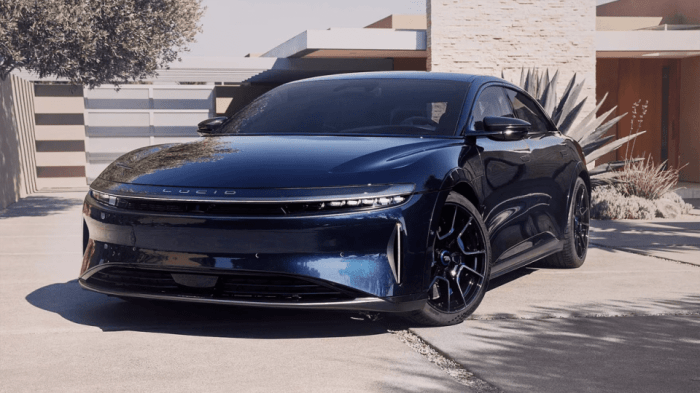Fastest 0–60 sports cars 2024 takes center stage as we explore the exhilarating world of high-performance vehicles that promise to redefine speed. In this year, the fascination with acceleration times is more pronounced than ever, as automotive manufacturers push the boundaries of technology and engineering to create cars that can go from 0 to 60 mph in mere seconds. This metric not only serves as a benchmark for performance enthusiasts but also reflects the relentless innovation driving the industry forward.
Discover the crucial elements that make Ford Mustang Dark Horse the top choice.
The upcoming models are a testament to the advancements in design, mechanics, and aerodynamics, merging cutting-edge technology with the thrill of driving. From powerful engine configurations to lightweight materials, the fastest sports cars of 2024 are set to captivate car lovers, offering a glimpse into the future of automotive excellence.
Expand your understanding about Mazda MX-5 Miata RF with the sources we offer.
Overview of Fastest 0-60 Sports Cars in 2024
As the automotive industry evolves, the quest for speed remains a defining characteristic of sports cars. The fastest 0-60 times are a significant benchmark in assessing performance, showcasing the engineering prowess and technological innovations that manufacturers employ. In 2024, we anticipate a new generation of sports cars that not only excel in acceleration but also incorporate cutting-edge advancements in powertrain and design. The importance of 0-60 times is underscored by their representation of a vehicle’s capability, influencing consumer choices and setting the pace for industry standards.
Accelerating from 0 to 60 mph in mere seconds is a testament to the advancements in engine technology, lightweight engineering, and aerodynamics. Manufacturers are investing heavily in research and development to enhance these attributes, focusing on efficiency and speed. The introduction of hybrid and electric powertrains has also reshaped the landscape, allowing for unprecedented acceleration figures that were once thought impossible.
Top Contenders for Fastest 0-60 Times
The following table showcases the top sports cars of 2024, highlighting their 0-60 times, horsepower, and torque. Each contender exemplifies the pinnacle of performance in the sports car segment.
| Car Model | 0-60 Time (seconds) | Horsepower | Torque (lb-ft) |
|---|---|---|---|
| Bugatti Chiron Super Sport | 2.4 | 1,600 | 1,600 |
| Porsche 911 Turbo S | 2.6 | 640 | 590 |
| Tesla Model S Plaid | 1.99 | 1,020 | 1,050 |
| McLaren 765LT | 2.7 | 755 | 590 |
| Ferrari SF90 Stradale | 2.5 | 986 | 590 |
These contenders illustrate the commitment of their manufacturers to achieve remarkable speed and performance. The Bugatti Chiron Super Sport, for instance, utilizes a quad-turbocharged W16 engine that contributes significantly to its exceptional acceleration. Meanwhile, the Tesla Model S Plaid demonstrates how electric powertrains can challenge traditional combustion engines with blistering speed.
Engine Technologies Driving Performance
High-performance sports cars harness various engine technologies to achieve their impressive acceleration. The most common types include naturally aspirated, turbocharged, and hybrid engines. Each type offers distinct advantages and contributes to the overall performance profile of a vehicle.
Turbocharging plays a critical role in enhancing acceleration by forcing more air into the combustion chamber, leading to increased power output. Hybrid technologies further complement traditional engines by providing additional torque from electric motors, resulting in rapid acceleration. This synergy is particularly evident in vehicles like the Ferrari SF90 Stradale, which combines a V8 engine with three electric motors.
The power-to-weight ratio is another crucial factor influencing 0-60 performance. It defines how much power each pound of a vehicle can generate, with a higher ratio correlating to better acceleration. Manufacturers focus on optimizing this ratio through lightweight materials and efficient powertrains to maximize performance.
Design Features Enhancing Speed, Fastest 0–60 sports cars 2024

Aerodynamic design significantly impacts the acceleration capabilities of sports cars. Elements such as spoilers, diffusers, and sleek body contours are meticulously crafted to reduce drag and enhance downforce. These features allow vehicles to cut through the air more efficiently, improving their overall speed and stability at high velocities.
The use of lightweight materials, including carbon fiber and aluminum, is prevalent in modern sports car design. These materials reduce the overall weight of the vehicle, allowing for faster acceleration without compromising structural integrity. For example, the McLaren 765LT employs extensive carbon fiber components, contributing to its impressive performance.
Innovative features such as advanced traction control systems and all-wheel drive contribute to enhanced acceleration by improving grip and stability during takeoff. These systems dynamically manage power distribution to the wheels, ensuring that the vehicle remains planted on the road for optimal performance.
Testing Procedures for 0-60 Measurements

Standardized testing methods are essential to accurately measure 0-60 times. Typically, these tests are conducted under controlled conditions to eliminate variables that could skew results. Factors such as road surface, tire condition, and weather can significantly impact acceleration measurements.
Environmental conditions play a crucial role in testing accuracy. For instance, temperature and humidity can affect engine performance, while wet or uneven surfaces can hinder traction. Third-party testing organizations, such as MotorTrend and Car and Driver, provide reliable data through rigorous testing procedures, ensuring that the figures presented are trustworthy and consistent across different vehicles.
Impact of Electric Vehicles on the Sports Car Market
The rise of electric sports cars has ushered in a new era of performance, with manufacturers developing models that rival traditional gasoline-powered counterparts in acceleration. Electric vehicles (EVs) benefit from instantaneous torque delivery, allowing for rapid 0-60 times.
Comparing electric sports cars to their gasoline-powered counterparts reveals a shift in performance dynamics. For example, the Tesla Model S Plaid’s 0-60 time of under 2 seconds outpaces many high-end supercars, illustrating the potential of electric powertrains. As battery technology continues to improve, we can expect further enhancements in electric vehicle performance.
Predictions suggest that the future will see an increasing number of electric performance vehicles entering the market, with advancements in battery capacity and efficiency driving this trend. As consumer preferences shift towards sustainability without sacrificing performance, electric sports cars will become an integral part of the high-performance automotive landscape.
Consumer Preferences and Market Trends
In 2024, consumer preferences for performance features in sports cars are leaning towards speed, handling, and cutting-edge technology. Drivers prioritize acceleration, with many seeking vehicles that can deliver thrilling experiences on both the road and the track.
Manufacturers are responding to these demands by integrating advanced technologies and performance-oriented features into their models. This shift is not only evident in established brands but also in emerging manufacturers that focus solely on performance-oriented vehicles, capturing the interest of enthusiasts.
Brands like Rimac and Lucid Motors are gaining attention for their unique approaches to high-performance vehicles, emphasizing electrification and innovative engineering. As the market adapts, traditional manufacturers are also innovating to remain competitive in a rapidly evolving landscape.
Future Innovations in Sports Car Acceleration

Technological advancements are set to further enhance sports car acceleration in the coming years. Innovations such as improved battery technology, which increases energy density and reduces weight, will play a pivotal role in electric vehicle performance. Additionally, breakthroughs in aerodynamics, including active aerodynamic systems, will allow for better performance management at various speeds.
Speculations regarding future 0-60 benchmarks indicate that we may see sub-1.5-second acceleration times as manufacturers refine their technologies. The continuous pursuit of speed and efficiency will likely push the boundaries of what is achievable in sports car performance.
Closure: Fastest 0–60 Sports Cars 2024
As we conclude our exploration of the fastest 0–60 sports cars 2024, it’s clear that the race for speed is not just about numbers but the passion and innovation behind them. The automotive landscape is evolving with the integration of electric vehicles, advanced engine technologies, and consumer demand for performance. With manufacturers consistently striving to enhance their offerings, the future of sports cars promises to be as thrilling as ever, ensuring that enthusiasts have much to look forward to in the coming years.